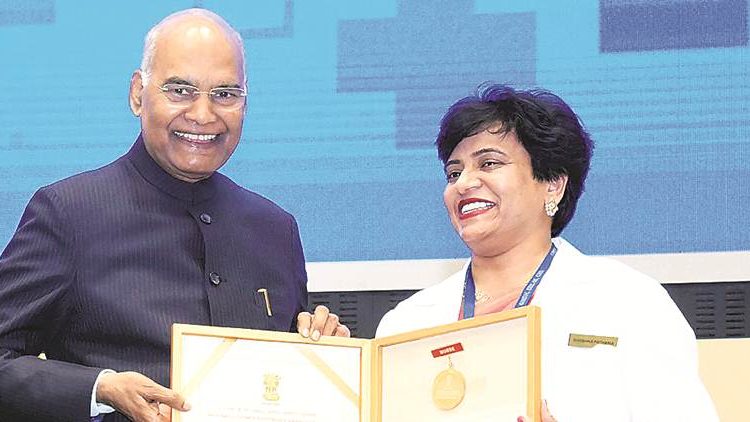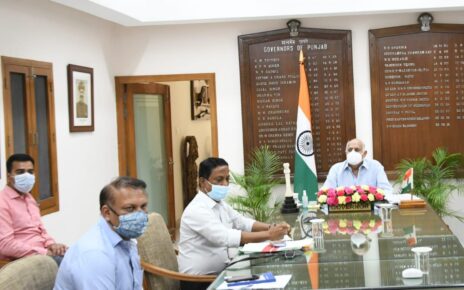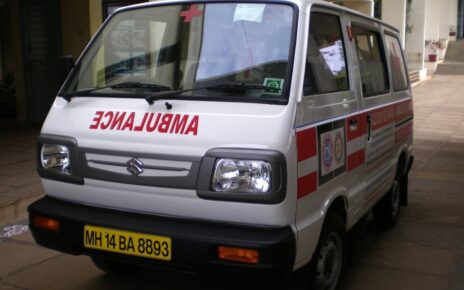“Nursing is a service, you have to commit your all when you are into this profession. Nothing should interrupt your engagement with your patient at any time,” says Shobhna Pathania, a nursing sister at the Government Multi-Specialty Hospital (GMSH) in Sector 16, Chandigarh, who won the National Florence Nightingale Award on Thursday for her contribution to the field of nursing.
Instituted in 1973 to recognise meritorious work in the nursing field, the award is named after famous British nurse and reformer Florence Nightingale, who is often regarded as the founder of modern nursing.
Data from the Indian Nursing Council suggests that as of 2014, there were about 26 lakh nurses and midwives registered in India. The National Florence Nightingale Award was presented to a total of 36 such health officials from across India. Apart from nurses, the award is given to Auxiliary Nurse Midwives (ANS) and Lady Health Visitors (LHV).
“There are so many people who are doing such significant work in the field of nursing, but there are very few who get recognition for it. So I am truly lucky to have been recognised,” says Pathania, who was recommended for the award by Director Health Service (DHS), Chandigarh, Dr G Dewan. “DHS took cognisance of all the hard work I have put in though the years. I am so thankful (to him). Now I feel encouraged to do even better.”
Apart from her 28-year-long service to the medical field, Pathania has been recognised for creating a separate burn unit at the hospital, initiating a network for emergency blood collection and contributing to the smooth administration of insurance grants under the Ayushman Bharat Yojana or the National Health Protection Scheme at GMSH 16.
“When the Ayushman Bharat Yojana was announced, there was so much confusion regarding its implementation. Any new scheme takes time to run smoothly, so I decided to commit myself to the task of working with government officials to make sure that the scheme is implemented successfully at least in my hospital,” says Pathania. The nurse has also been appointed as the nodal officer for handling biochemical waste at the hospital.
The nature of Pathania’s work has driven her to believe that the profession of nursing requires devotion beyond just commitment. “For me, work is worship in the sincerest form. I might not go to temples or do idol worship, but the service I provide to these people, I hope can be seen as my prayers, which have been answered in the form of blessings showered upon me by grateful patients,” Pathania says.
Pathania claims that she did not choose the profession, “but the profession chose me”. “I was pursuing BA degree in 1990, when a friend of my father, who is a Christian and whose daughter is a nurse too, said he saw a distinct seva bhaav in me and recommended that I begin a career in nursing. I think these things are just instinctive sometimes,” Pathania says.
However, Pathania admits that the job is not an easy one. “We work at odd hours; we can be called upon anytime during emergencies. When my kids were small, I had night duty for half the month. It was so hard to leave a six-month-old child behind and go to work, but one has to do whatever the job requires,” Pathania says.
Few years into her career, relatives chided her parents for allowing her to be a nurse. “They told my parents no one will marry a nurse, because we work at odd hours and cannot commit fully to domestic duties. But with the support of my husband and my children, I have always been able to do my work, no matter how hard things get,” Pathania says.
According to the World Health Organisation (WHO), the recommended nurse to patient ratio for a country is 1:500. In India, this ratio is 1:475 which points to a shortage of more than two million nurses. According to Pathania, the stigma around nursing work which includes direct human contact and nurturing has discouraged many to allow their daughters from taking up the career.
“Our work is maternal in nature; it is to take care of all. It should be extolled rather than looked down upon. Hopefully people will start treating nurses with more respect in future,” says Pathania. “WHO has tagged next year as the ‘year of nurses and midwives’. I will do my best to make sure that I contribute to this year significantly.”



